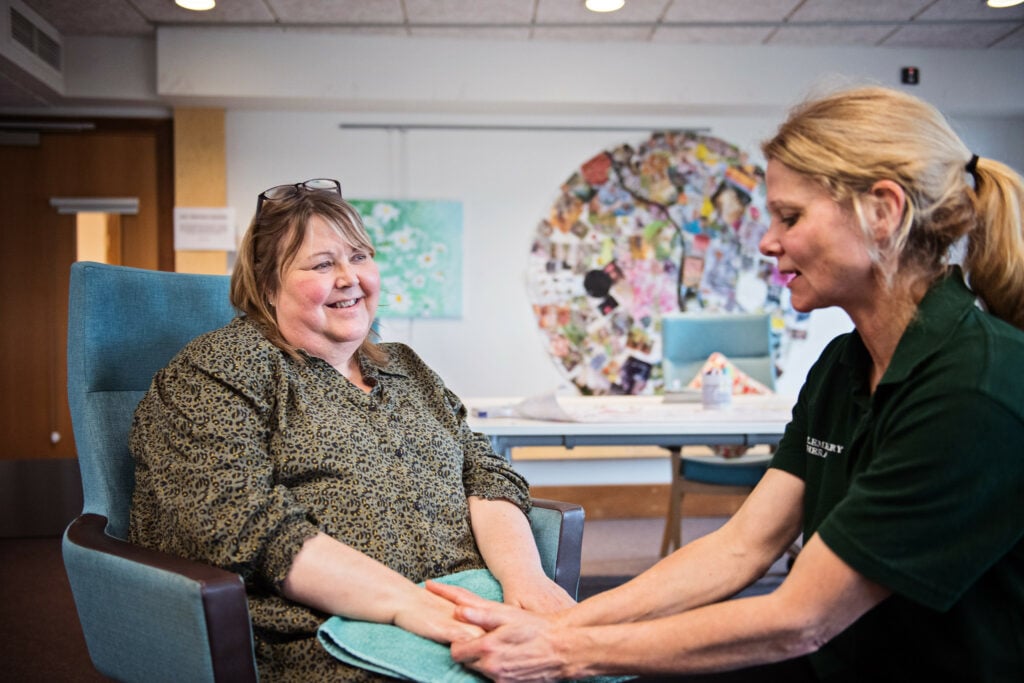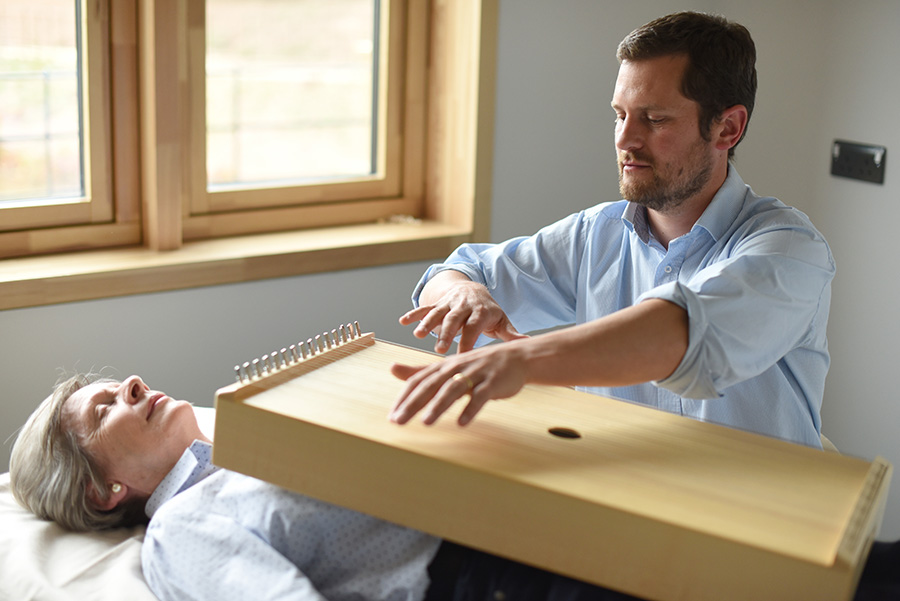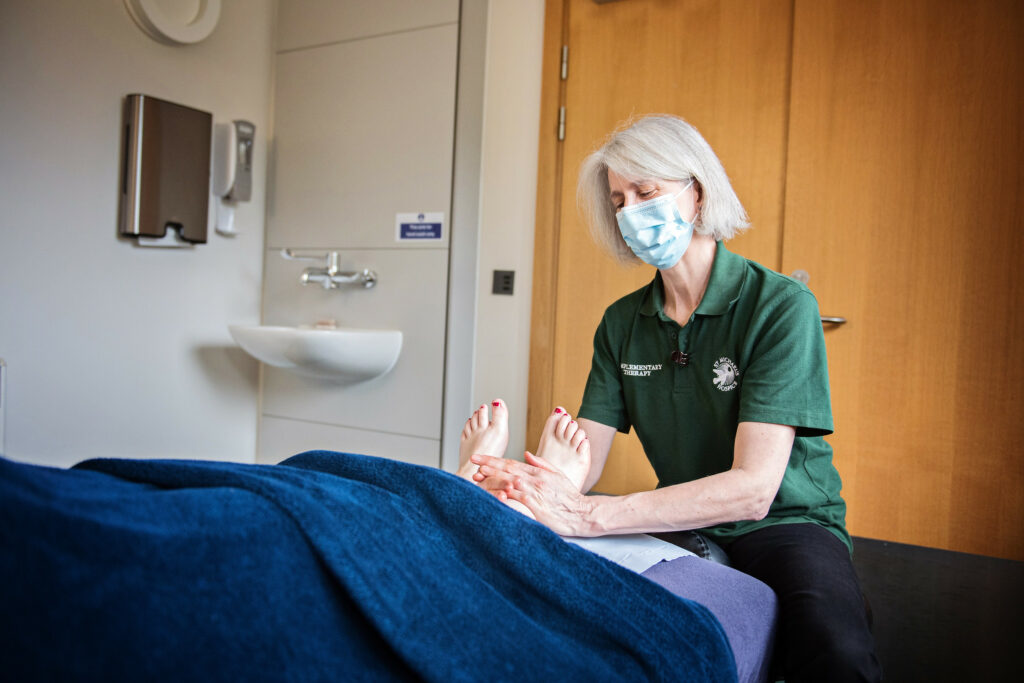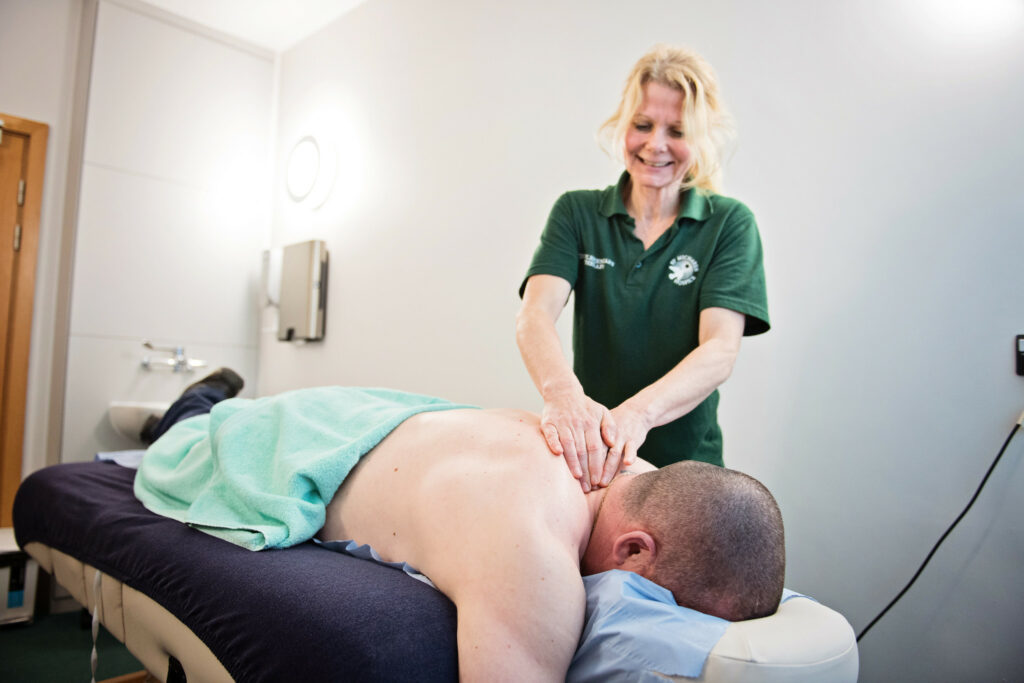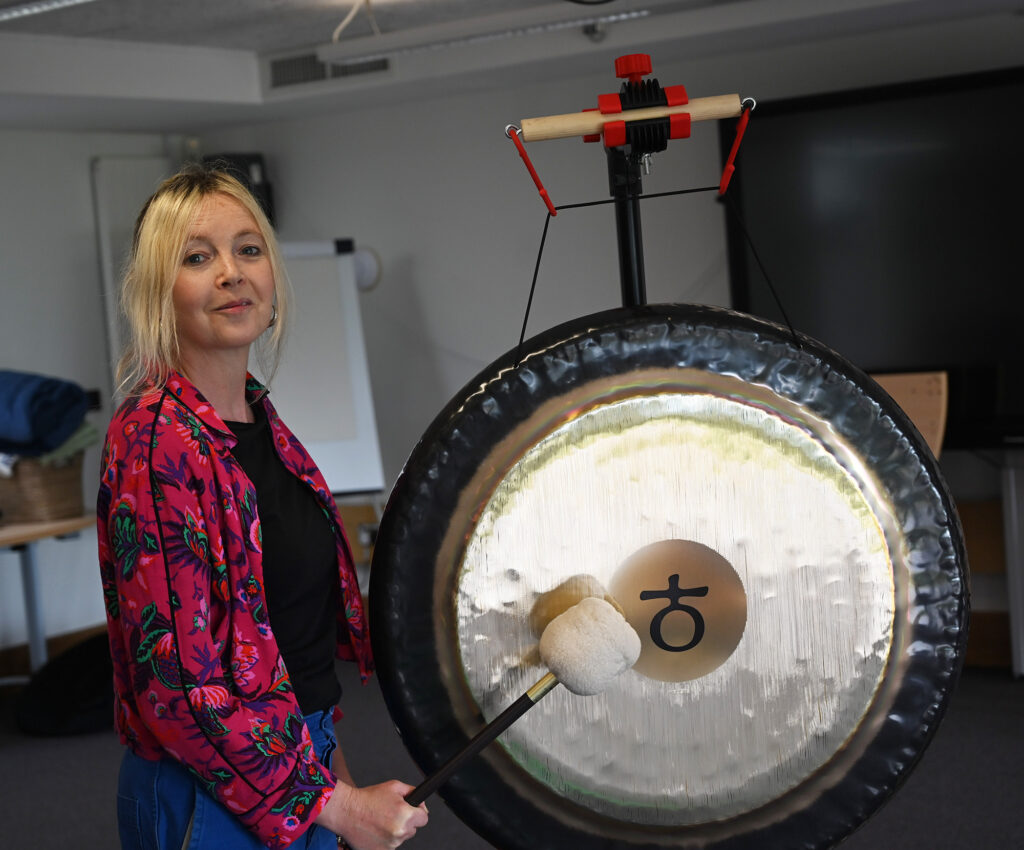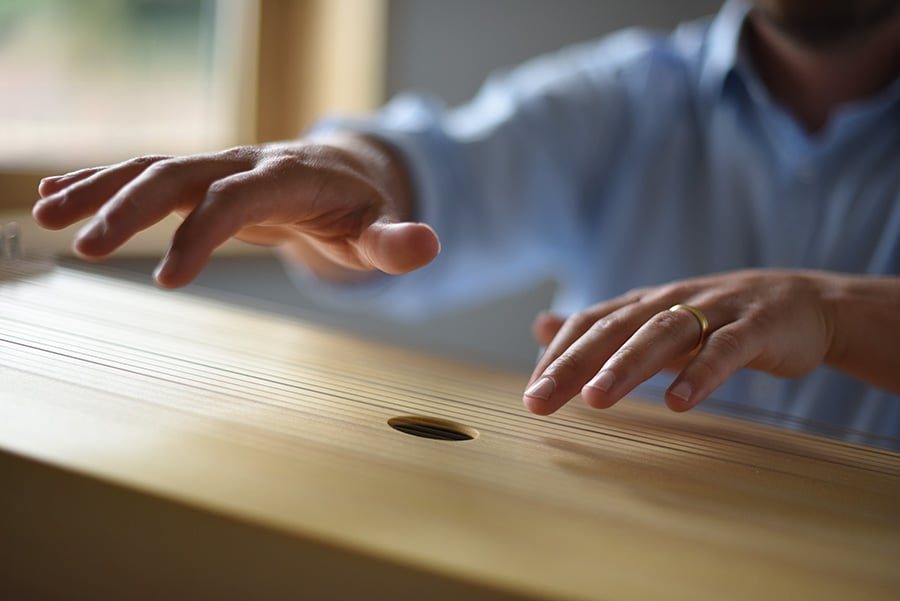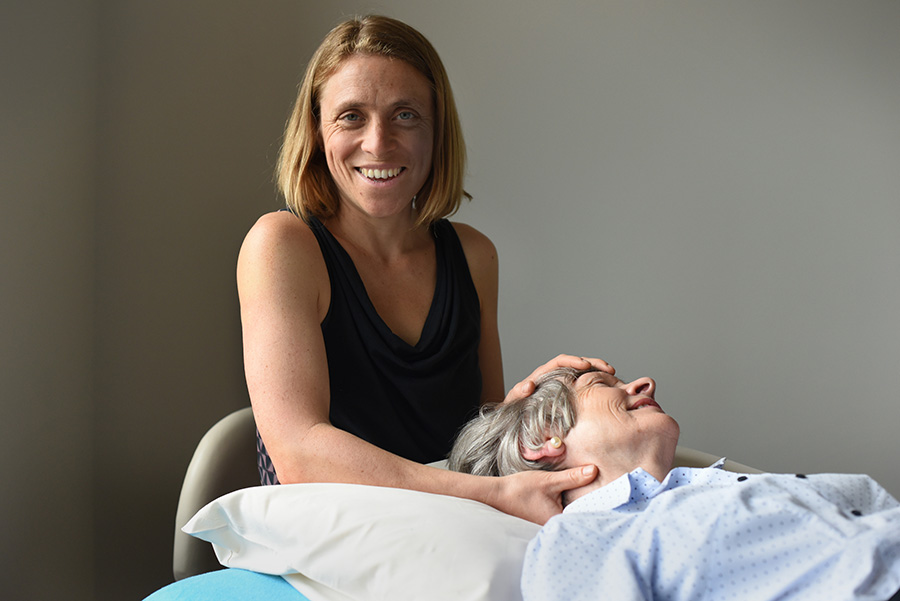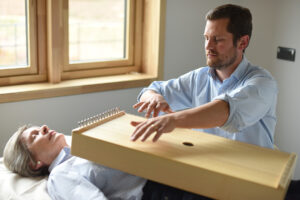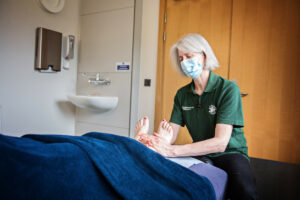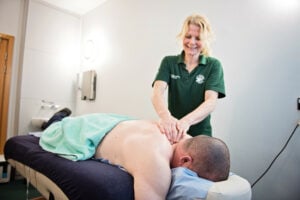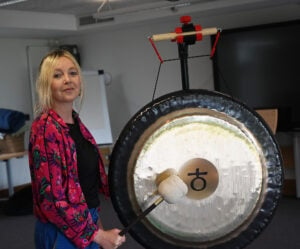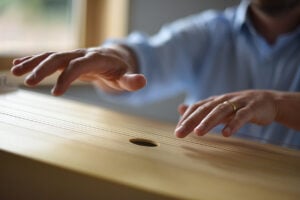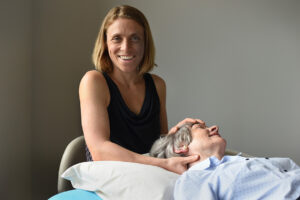Complementary Therapies are an integral part of the care and support provided to both patients and families, with people typically feeling more relaxed and calmer after a treatment from one of our Complementary Therapists.
What we do:
We offer a variety of Complementary Therapies, all of which can be used safely alongside the medical care patients are receiving. Complementary Therapies can help relieve symptoms of stress, and may also help alleviate symptoms such as tension, anxiety, pain and nausea.
Our Team comprises highly trained and experienced staff and volunteers who are deeply passionate about helping others.
Our services are open to all patients, as well as their caregivers and families, who are using any of our services. These treatments are given in patients’ rooms, at the Day Hospice and in our Therapy rooms which have been designed to be comfortable, light, airy and inviting.
We offer:
Acupuncture
Acupuncture involves inserting very fine disposable needles into specific points of the body. At St Michael’s, it’s mainly used for relaxation and to alleviate symptoms like pain or nausea.
Aromatherapy
Aromatherapy is the use of essential oils to improve health and wellbeing. These essential oils are concentrated natural oils made from plants. Each essential oil has properties that are believed to give different health benefits.
Breathing & Relaxation
A person’s illness can sometimes restrict their breathing and, because breathing affects the way we feel, learning simple breathing techniques can help people to feel relaxed and more in control and enjoy an improved sense of wellbeing.
Cranio-Sacral Therapy
Cranio-Sacral Therapy is a nurturing, gentle touch therapy which has roots in osteopathy. The therapy encourages a deep relaxation which allows the body to unwind and release physically, emotionally and psychologically.
Hypnotherapy
Hypnotherapy can induce a relaxed and comfortable state which helps patients more readily accept beneficial suggestions and act upon them.
It can be used as a means of reducing stress and anxiety, and to help with pain management and symptom control.
The hypnotic state is entirely natural, comfortable and relaxing, and the patient remains in complete control throughout.
Indian Head Massage
Indian Head Massage can be a stimulating, yet very relaxing massage. It can improve the condition of the scalp, hair and skin by increasing circulation. Parts of the body treated include the upper back, shoulders, arms, neck and face.
Laughter Yoga
Laughter Yoga is a way of encouraging people to laugh for the sake of laughing. It uses fun exercises and games to encourage playfulness which, alongside yogic breathing (Pranayama) and gentle stretching, can improve overall wellbeing
‘M’ Technique®
The ‘M’ Technique® is a type of structured touch that many people find deeply relaxing. The technique’s gentle and repetitive stroking make it suitable for all patients. Being easy to learn, family and carers can be taught how to practice the M technique as a means to help comfort their loved ones.
Massage
Massage can be very effective at reducing symptoms such as pain, stiffness, tension and anxiety. After a massage, most people feel more relaxed and more able to cope with their illness.
The pressure and techniques used can be gentle or firm depending on need. Oil is often used, but people may remain clothed if they wish.
Mindfulness
Mindfulness at St Michael’s Hospice is provided in conjunction with Breathworks CIC, an international mindfulness organisation founded in the United Kingdom, which offers mindfulness-based approaches to living well with pain, stress, and illness.
Music Therapy
Listening to carefully-selected music combined with easy-to-learn breathing techniques can calm and soothe mind and body. The therapy may involve drawing to music, and sessions can be helpful for managing anxiety, easing breathlessness or simply allowing people to experience a deep sense of relaxation while offering psychological and emotional support.
Physiotherapy
The main focus for our physiotherapy service is to carry out sessions either on the inpatient wards or in our rehabilitation gym.
Patients may be given a personalised exercise program to do at home, or work with a Physio weekly in the gym or be referred into one of the group exercise classes or FAB clinic.
Reflexology
Reflexology is a relaxing foot or hand massage based on the principle that areas on the feet and hands resonate with different parts of the body.
The reflexologist uses small movements of their thumbs and fingers to stimulate areas of a patient’s feet and hands.
Reiki
Reiki works with the body’s natural energy system, helping the flow and balance of energy in the body. It can help on a physical, psychological and emotional level. This is a deeply relaxing treatment, which may help reduce pain, anxiety, nausea, stress and tension, as well as improving sleep and an overall sense of well-being.
Shiatsu
Shiatsu (meaning ‘finger pressure’ in Japanese) promotes balance and relaxation. The practitioner uses gentle pressing, stretching and holding techniques to stimulate acupressure points and increase awareness of different parts of the body.
The breath is also used to help release tension.
Sound Therapy
During a sound therapy session, the patient rests in a chair or bed while the therapist creates sounds with instruments like tuning forks, singing bowls, chimes, harps, gongs and voice. The sound vibrations encourage a deep relaxation and help switch-off an overthinking mind.
Tai chi Movement for Wellbeing (TMW)
TMW is a sequence of movements loosely based on Tai chi. The moves are shortened and simplified making it more accessible and easier to learn. The emphasis is on body awareness and relaxation. It could be described as a form of mindful movement.
TMW helps bring awareness to posture and balance. It encourages you to look at how you use your body. TMW can help maintain and ease movement.
*Please note that not all treatments are available at all times and the list of therapies available may change.
